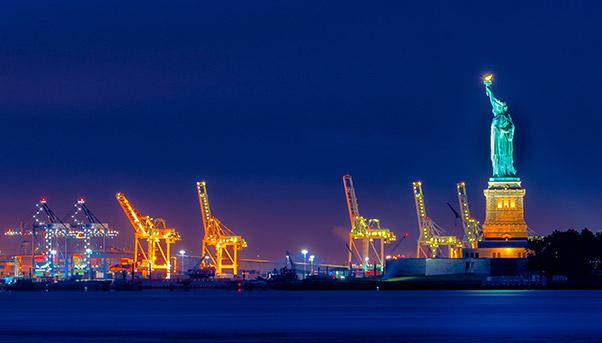
US plans $3bn investment in green port infrastructure
NEW YORK : Some $3bn in funding has been earmarked for the US Environmental Protection Agency’s Clean Ports Program with a focus on electrification.
Recent US legislation, notably the Bipartisan Infrastructure Law (2021), and the Inflation Reduction Act, (2022), has authorised large amounts of future spending on infrastructure that would support carbon reductions and future shifts to cleaner energy. A major beneficially has been the Environmental Protection Agency (EPA), whose work includes a Clean Ports Program, which has committed to work closely with other agencies including the Department of Energy (DOE), and the Department of Transportation (DOT), specifically, on decarbonising transport.
As part of these ongoing efforts, in early May, the EPA announced that it would be investing $4 billion, tapped from the 2022 legislation, towards port electrification – focusing on equipment at terminals, as part of its “Invest in America” initiative.
In its announcement, the EPA said that the $4 billion would be divided up between “technologies to reduce harmful air and climate pollutants at US ports”, which would get $3 billion, the lion’s share for the agency’s Clean Ports Program, would go towards development of “electrification of equipment at ports”. In addition, funding would be available for reducing vehicle emissions, under another EPA initiative the “Clean Heavy-Duty Vehicle Program”
According to the Request for Information (RFI) to be published in the Federal Register (Docket # will be EPA-HQ-OAR-2023-0216; FRL-10833-01-OAR), comments are being requested to guide the EPA on matters including: “…the availability, market price, and performance of zero-emission trucks, zero-emission port equipment, electric charging and other fueling infrastructure needs for zero-emission technologies in the near term (1-3 years, and 1-5 years for port equipment), and whether the components of these systems are manufactured in the United States.”
The $3 billion funding tranche will be disbursed through grants from the EPA, to entities that include port authorities, a state, regional, local agencies that have jurisdiction over a port authority or a port, or an air pollution control agency. Importantly, private companies that “own operate, or use the facilities, cargo-handling equipment, transportation equipment or related technology of a port” can apply for grants, in partnership with the public entities mentioned above.
Many US ports are structured as “landlord ports”, meaning that the actual terminal operators and stevedores operating the equipment, are often tied to large private companies; private-equity backed Ports America is one example. These private outfits lease their facilities from the state, regional, or local port authorities (which do not actually operate the terminals and handle stevedoring).

